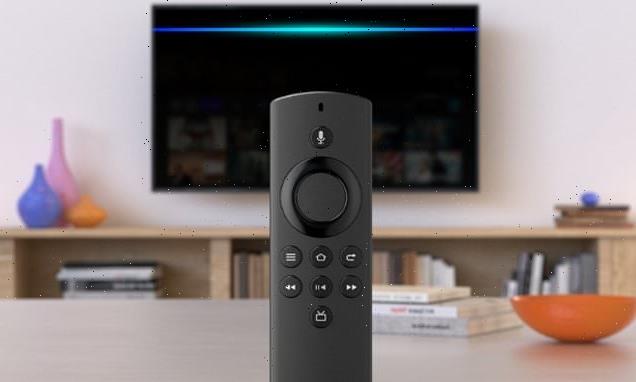People shouldn’t get the Johnson & Johnson COVID-19 vaccine when the Pfizer-BioNTech and Moderna shots are available, the Centers for Disease Control and Prevention said Thursday.
The recommendation, from CDC Director Dr. Rochelle Walensky, came hours after members of the agency's Advisory Committee on Immunization Practices voted in favor of the guidance. The panel convened following an update from the Food and Drug Administration on the risk of rare but potentially life-threatening blood clots linked to the Johnson & Johnson vaccine.
Full coverage of the Covid-19 pandemic
At least 54 people in the U.S., most of them women, have been hospitalized by the blood clots, and nine people have died.
"Today’s updated recommendation emphasizes CDC’s commitment to provide real-time scientific information to the American public," Walensky said in a statement. "I continue to encourage all Americans to get vaccinated and boosted.”
The advisory panel voted unanimously to declare the mRNA vaccines, from Pfizer and Moderna, the "preferred" options for adults, ultimately concluding that the mRNA vaccines provided greater protection and fewer risks than Johnson & Johnson’s. The recommendation wouldn't prohibit use of the Johnson & Johnson shot but instead make it clear that the other options are better choices if they are available.
"I really cannot recommend a vaccine that has been associated with a condition that may lead to death," said a committee member, Dr. Pablo Sanchez, a pediatrician at Nationwide Children's Hospital in Ohio.
Johnson & Johnson's vaccine is linked to a blood clotting condition known as thrombosis with thrombocytopenia syndrome, or TTS. The AstraZeneca vaccine has also been associated with the blood clot issue.
Both the Johnson & Johnson and the AstraZeneca vaccines use an adenovirus technology to train the immune system to fight the coronavirus. The shots developed by Pfizer-BioNTech and Moderna use a different approach, mRNA, to train the immune system, and they haven't been linked to the clots.
The advisory committee met after the FDA announced Tuesday that had it added a contraindication to the Johnson & Johnson vaccine, saying people who had previously developed TTS after having gotten one dose of the vaccine shouldn't get second doses. The FDA also said the highest reporting rate of the blood clot issue — about 1 case per 100,000 doses administered — has been in women ages 30 to 49. About 15 percent of the cases have been fatal.
Dr. Sara Oliver, an epidemic intelligence service officer for the CDC, said in a presentation to the committee that data show that the Johnson & Johnson vaccine prevents more hospitalizations and deaths from Covid than the TTS it can cause. Still, she said, the vaccine prevents fewer hospitalizations and deaths than two doses of an mRNA vaccine.
Dr. Penny Heaton, the global head of research and development at Johnson & Johnson's vaccine division, defended the shot at the meeting, saying it offers high levels of protection against Covid, requires only one dose and is easier to store and transport than the mRNA vaccines, which must be stored at cold temperatures.
But committee members noted that there is increasing evidence to suggest that one dose of Johnson & Johnson's vaccine isn't sufficient. In October, federal health officials said all Johnson & Johnson recipients should get booster shots if it has been two months since their initial vaccinations. The vast majority of initial Johnson & Johnson recipients have opted for a Pfizer or a Moderna booster.
After the vote, the committee's chair, Dr. Grace Lee, acknowledged that some members want to make the language recommending the Pfizer and Moderna vaccines over Johnson & Johnson's even stronger, saying they wouldn't recommend the shot to their family members, while others stressed the importance of having an alternative vaccine to the mRNA shots.
The Biden administration is urging all eligible people in the U.S. to get boosters against the threat of the omicron variant. Initial data suggest that three shots of the mRNA vaccines provide adequate protection against the new strain.
The Pfizer and Moderna vaccines are readily available in the U.S. More than 570 million doses of the Pfizer and Moderna vaccines have been delivered to providers; only 28 million doses of the Johnson & Johnson vaccine have been delivered.
The link between the Johnson & Johnson vaccine and blood clots first emerged in April after six cases were reported in women. Federal health officials paused the use of the vaccine at that time to investigate the cases and resumed administration 10 days later, adding a warning that the vaccine could be linked to the clots, particularly among women ages 18 to 49.
A total of 54 cases of TTS after Johnson & Johnson vaccination were identified through late August, Dr. Isaac See, a scientist in the CDC's emerging infectious diseases unit, said Thursday in a presentation to the committee. All the patients were hospitalized, including 36 who were admitted to intensive care.
Download the NBC News app for full coverage of the Covid-19 pandemic
Most cases occurred in women, and symptoms usually occurred within nine days of vaccination with the first dose, he said. No cases of the rare clot issue have occurred in pregnant women. Risk factors for the clot issue include obesity, hypertension and diabetes.
Johnson & Johnson’s vaccine initially held promise, because it could be given as a single dose, rather than the two doses required for the Pfizer and Moderna vaccines. But clinical trials found that its effectiveness was much lower than that of the Pfizer and Moderna vaccines.
The effectiveness fell further with the emergence of the delta variant, leading health officials to recommend boosters.
More than 16 million people in the U.S. have had single shots of the Johnson & Johnson vaccine, according to the CDC. More than 470 million doses of the Pfizer and Moderna vaccines have been administered.
Follow NBC HEALTH on Twitter & Facebook.
Source: Read Full Article


